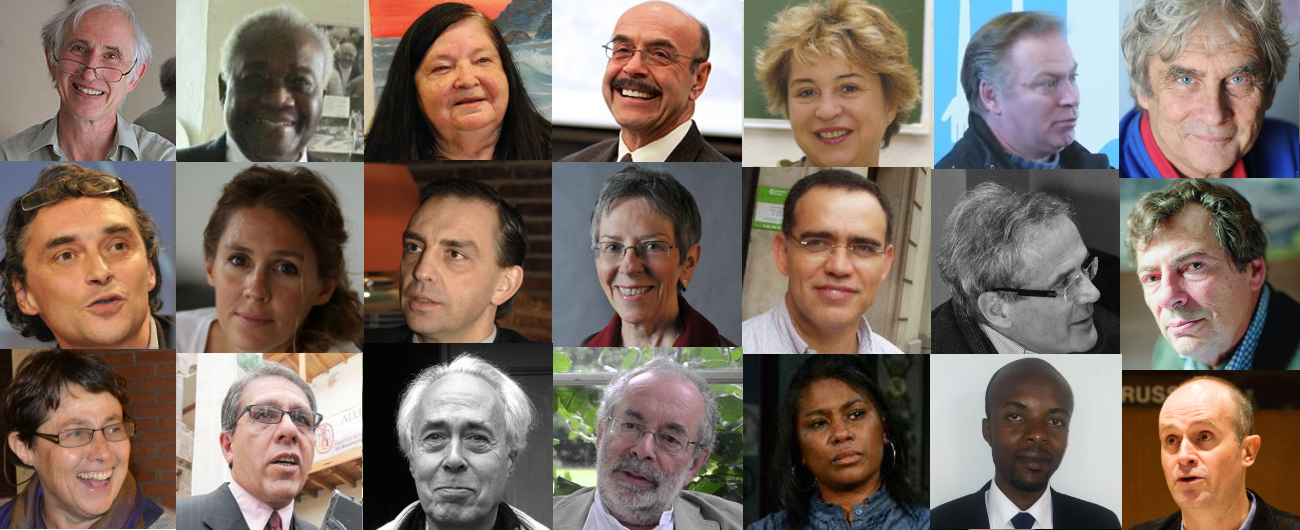Symposium at Cerisy International Cultural Centre, 6 to 13 June 2017

This June, the Cerisy-la-Salle International Cultural Centre will host a weeklong symposium on the life and work of Joseph Wresinski, born 100 years ago in 1917. Located in Normandy, France, the well-known European venue for intellectual thought will convene academics, activists working to overcome extreme poverty, and people from 15 countries who live in poverty. More than 80 participants will discuss “Rethinking our world from the perspective of poverty”.
The symposium will include perspectives from history, sociology, anthropology, psychology, epistemology, theology, and economics. The following topics will be addressed:
- People excluded from cities in search of their history;
- The context of the historical period when Joseph Wresinski first developed partnerships with people in deep poverty;
- The concept of responsibility;
- Violence and giving – rethinking human relations;
- Culture and extreme poverty;
- Epistemological criticism and theory of knowledge.
Attendees from ATD’s People’s University in Normandy, France will participate in a joint session of the symposium. This session will address the ways Wresinski helped social and political institutions, as well as the general public, to feel empowered rather than hopeless in the face of extreme poverty.
The full program for the symposium, which has received the patronage of UNESCO, can be found on the Centre Culturel International de Cerisy-la-Salle’s website (French only).
Starting in September, 2017, ATD will organize follow up round tables and symposiums in participants’ countries in order to get more people involved in thinking together about these important questions. The French publishing house, Editions Hermann, will publish the symposium proceedings.
Why hold a symposium to help overcome extreme poverty?
In order to reduce extreme poverty, we need improved access to rights and a heightened good will on the part of society. But neither is enough on its own. There needs to be a connection between working for justice and encouraging generosity. The symposium will examine Wresinki’s thinking around his statements regarding “justice and love finally reconciled”. In addition, the following topics will be addressed:
Our society rarely grasps that the greatest cause of suffering for people living in extreme poverty is not a lack of money or material possessions, but rather the inability to give anything to others.
Many people accept Darwin’s theory of the “survival of the fittest”. Why do people continue to accept the idea that it is inevitable that the weakest members of society suffer and die?
Popular movements for justice have had difficulty learning from, and being inspired by, the very people who suffer most from the injustice that is extreme poverty. Why?
People cannot overcome the injustice of extreme poverty if they feel ashamed and cannot talk about it.
These concerns are not theoretical. They originate from the lived experience of people in extreme poverty and those who work closely with them to overcome it. From the start of his work in disadvantaged communities, Joseph Wresinski challenged theoretical assumptions about how poverty is understood and how it should be addressed. When movements, programs, and policies are conceived and implemented by people who do not understand the reality of extreme poverty, these efforts cannot be successful.
From its early years under Wresinski’s leadership, ATD Fourth World created an institute for research and training in human relations and developed other forums to examine similar issues. Peoples University activities also contributed to ongoing efforts to call into question commonly accepted ideas about extreme poverty, and to think through the issues that it’s existence raises for society. In his writings and the work he undertook, Joseph Wresinski insisted that the challenge of extreme poverty is not just a question of getting people out of it. Rather, it is re-thinking our entire world view with those living in extreme poverty — in order to overcome poverty, certainly — but also to build a society in which no one is left behind.
The Cerisy symposium will identify and examine the ways Wresinski’s work helps us understand poverty, but also concepts such as responsibility, human relations, citizenship, and culture. Participants will study Wresinki’s work and writings, and compare them to those of intellectuals like Marcel Mauss, René Girard, Paulo Freire, Simone Weil, and Hannah Arendt. The idea is to see how extreme poverty challenges not only our intellectual assumptions, but also our beliefs about how we live our daily lives, our views on culture, and our own sense of responsibility, even our spirituality. If we do not re-examine all these facets of life, we will never end extreme poverty. Raising these sorts of questions has been one of the most original and significant contributions of ATD Fourth World to the study of philosophy, social science and other disciplines.
Daily updates on the symposium will be posted on http://www.poverty-stop.org as of 6 June. A more comprehensive report will be available on the site as of 11 June. For more information about Joseph Wresinski, see http://www.joseph-wresinski.org/en/
Video of Joseph Wresinski – We Will Be Respected When We Can Speak Up
In the video below, Joseph Wresinki addresses a People’s University in Paris on the importance of speaking up and taking an active role in efforts to overcome poverty. If English subtitles do not appear, click on the small white “cc” button at the bottom of the screen to turn them on.


Play with YouTube
By clicking on the video you accept that YouTube drop its cookies on your browser.

